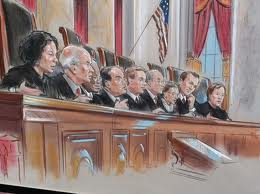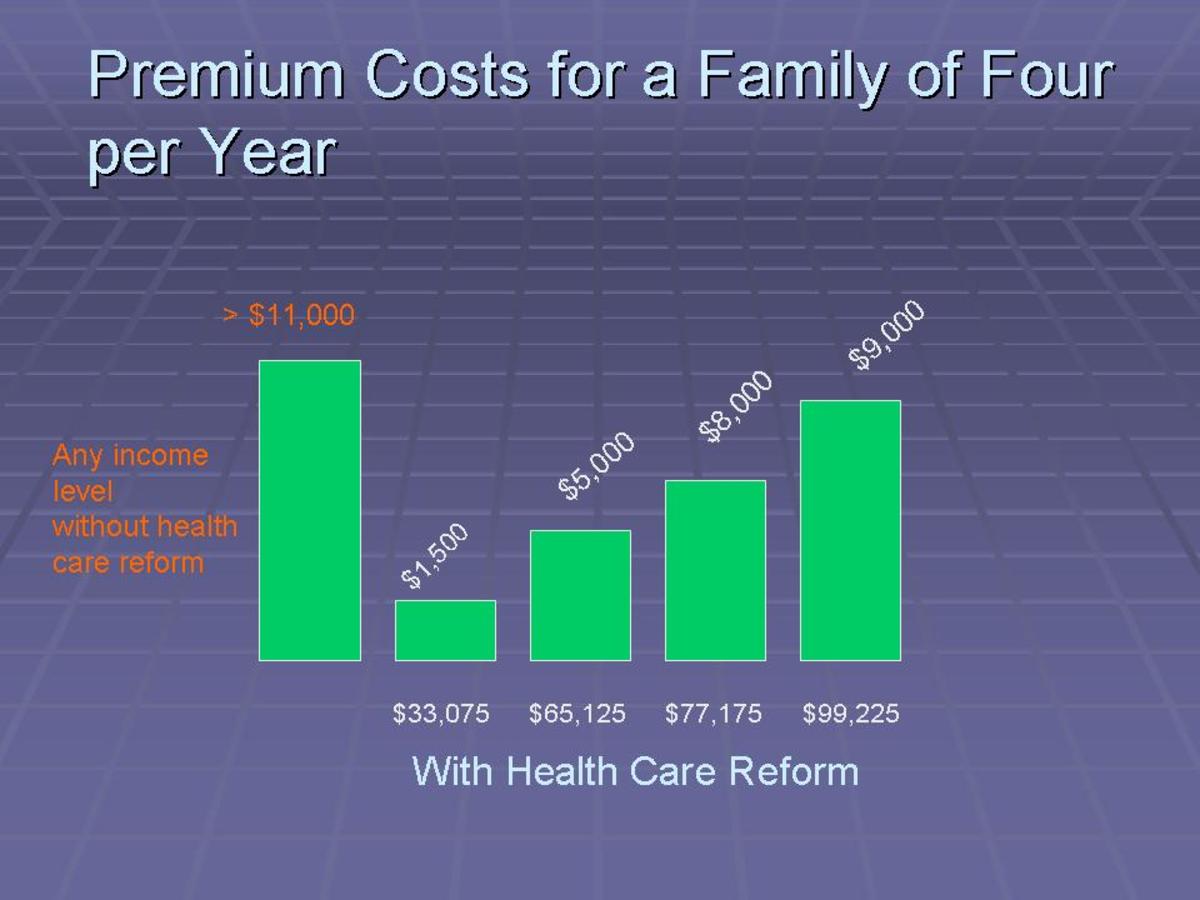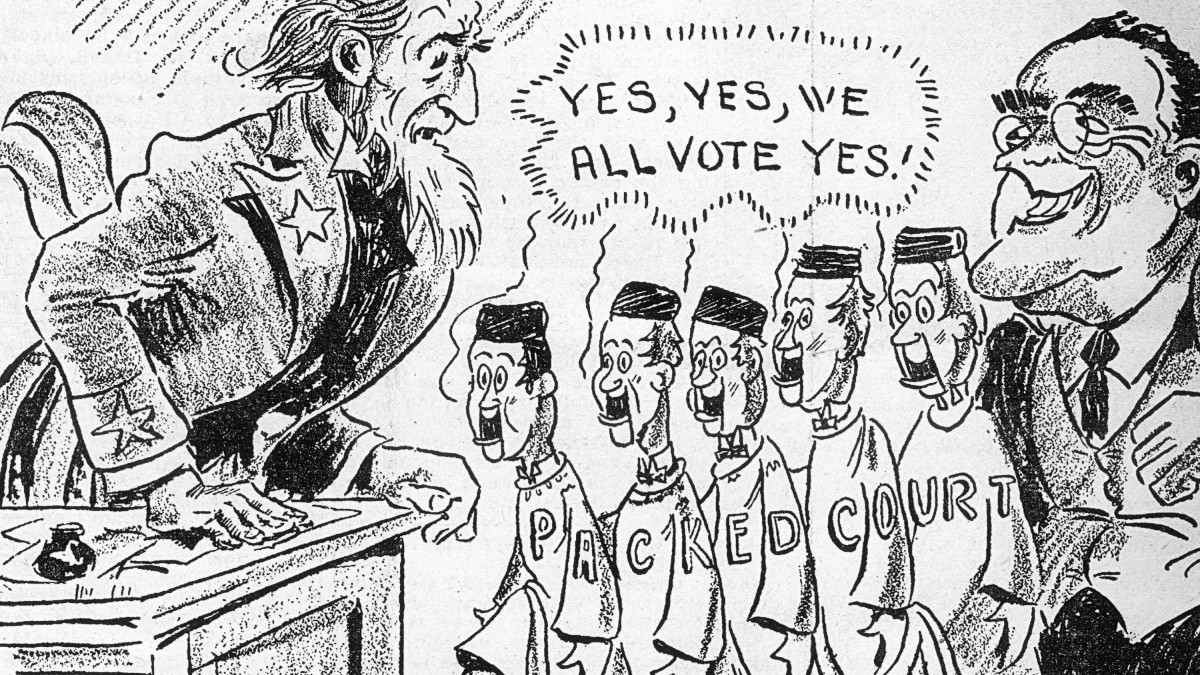The Health Care Reform Case, and Legislating from the Bench

Are We Really a Democracy?
I am writing this the day after oral arguments were completed in the Supreme Court case regarding the health care reform bill. All indications are that this is going to be a close vote, with the four liberal and four conservative justices most likely voting as expected. For these eight justices, the oral arguments were mostly a waste of time since their decisions were probably made a long time ago. So the fate of this major piece of legislation that will impact tens of millions of citizens could come down to one man, Anthony Kennedy. So with the exception of this one “swing” justice, this hugely important decision comes down to political ideology more than the merits of each side’s arguments. So in that sense, this hallowed judicial body is just another example of American politics as usual.
If you asked most Americans, they would say that the United States is a democracy based on the principle of majority rule. The Supreme Court (and courts in general), however, is the ultimate check on majority rule. So even if a bill supported by most Americans was passed through the Constitutional legislative process, it can still be nullified by the Supreme Court. In many cases, we have been blessed by this ability of the minority to avoid oppression at the hands of the majority. But unfortunately, in cases without clear Constitutional guidelines, you often end up with a situation in which one person makes a major, legislative decision as opposed to a body of elected leaders.
Sure, these justices were originally selected by elected leaders, but the ideological makeup of the court can often vary widely from the makeup of the population. These justices, after all, often serve for decades, and each party’s ability to appoint judges is as much of a reflection of when former judges died or retired as any past electoral success. And just because a person was nominated by a Republican or Democratic president does not guarantee that he or she will always behave as a conservative or liberal. So in my view, these nine individuals who serve for life, never have to worry about elections, and exercise the power of judicial review are clearly the most powerful government officials in the United States. And if this is true, then the federal government is more of an aristocracy of elites than a representative democracy (or, if you prefer, a republic).
Now you could have a long, fascinating discussion about the Constitutionality of the new health care reform bill. Clearly, there is nothing in the Constitution about health care. General statements about “promoting the general welfare” are as close as you are going to get. The Constitution also does not give the government the power to force individual citizens to buy anything in the private sector. Sure, there are laws on the books that require people to buy car insurance and homeowner’s insurance. But individuals can choose to neither drive nor buy a house, so it’s hard to argue that they are being forced into buying these types of insurance in the same sense as the health care mandate.
But whatever decision the Supreme Court makes, a couple of things are clear. First, if the health care mandate is declared unconstitutional, then the rest of the law as written is not financially viable. If health insurance companies are required to insure people regardless of pre-existing conditions or any other issues, and more healthy people have the choice of opting out while still receiving basic emergency care, then insurers have two choices: raise rates through the roof or go out of business. The insurance business, by nature, is only profitable if insurers can either have the option of denying coverage to high-risk people or charging them much higher rates to offset the risk. So if they cannot offset higher risks by adding a significant number of guaranteed, low-risk customers, then it’s back to the drawing board. Health care reformers will then be left with pushing for some form of single-payer plan, which is another way of saying that we will go right back to the increasingly expensive, hodge-podge of a “system” that we have had for decades.
Second, this case makes it very clear that the top legal minds of the land cannot agree with one another about the constitutionality of this law. So either the Constitution is vague on this issue or a significant percentage of seemingly smart, educated people are actually morons. As with many issues, it is clear to me that the former is more likely than the latter. So if these brilliant legal minds have difficulty coming to any agreement, then when in doubt, we should go with the democratic process. President Obama ran largely on the health care issue, and he managed to push a plan through his Democratic-majority Congress. Some like the plan and some don’t, so if enough people decide that it does more harm than good, then they can fight to vote people in who vow get rid of it. In a country that claims to be a democracy, this seems to make more sense than letting nine sharply divided people decide, with the fate of this (and many other bills) coming down to the one guy who most often ponders legal issues rather than applying one of the generic ideologies to the situation.
People on each side of the ideological spectrum often like to accuse the other of legislating from the bench. The truth is that both sides do this when they have the chance. It’s important to keep in mind, however, that the principle of judicial review is not expressly stated in the Constitution. Instead, it has evolved from legal precedents tracing back more than two hundred years. Remarkably, the Supreme Court way back when managed to establish a precedent that had the practical result of strengthening its own power. And like the Supreme Court way back when, the Supreme Court today does not simply apply the Constitution to modern situations and let it do the thinking for them. The Constitution is merely a framework. It cannot provide all the answers to certain modern questions that the original framers could hardly have imagined. Health care in 1787 was relatively cheap (and crappy). So I doubt that any of the Founding Fathers ever thought for a moment about the most just and efficient way to provide people with health insurance. So if you dump this decision into the lap of Supreme Court justices, they have no choice but to legislate from the bench. And the rest of us then waive our right to follow a democratic process.
Check out my new American history book:
- I Published My First Book!
This hub includes links to where it can be purchased.








